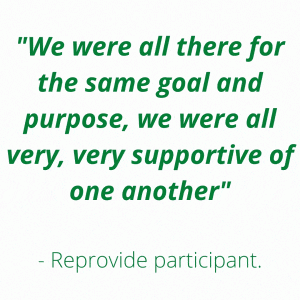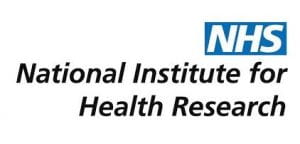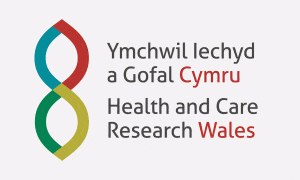PLEASE NOTE: REPROVIDE IS CLOSED TO NEW REFERALS
If you are seeking help to change your behaviour in relationships please contact RESPECT
If you are experiencing violence or abuse, please contact REFUGE.
Academics and commissioners seeking more information about REPROVIDE, please email reprovide-programme@bristol.ac.uk.
REPROVIDE is a research study looking at the effectiveness of a domestic abuse behaviour change programme for men. As part of the research, our partner organisations are delivering a 23-week group programme for men in the following areas:
- Bristol, North Somerset & South Gloucestershire (Splitz Support Service)
- Wiltshire & Bath (Splitz Support Service)
- Somerset (Barnardo’s)
- South Wales (Calan DVS)
To be eligible for the Reprovide study and group programme men must:
- Have intimate relationships with women
- Be over age of 21
- Be concerned about their behaviour towards a current or former partner
- Have had contact with their current or former partner within last 12 months (even if only via the courts)
- Agree to pass on their ex-/partner’s details.
Men are not eligible for Reprovide who:
- Have ongoing family court cases where Children’s Social Services are not involved
- Have ongoing criminal justice proceedings for a crime against ex/partner.
- Have been court mandated to attend a domestic abuse behaviour change programme.
The Referral Process
Referring is extremely simple: please just email or call us with the man’s name and contact details (with his permission) and we will get in touch. Men can also self-refer.
Alternatively, email it to us at reprovide-men@bristol.ac.uk.
Please be aware that not all men who are referred will get a place on the programme – see below and this page for more information.
Posters and Leaflets to download
- Reprovide Poster (all areas)
- Reprovide Leaflet (Barnardo’s – Somerset)
- Reprovide Leaflet (Splitz – Wiltshire)
- Reprovide Leafle (Splitz – Bristol)
- Reprovide Contact Card – (English)
- Reprovide Contact Card – (Welsh)
We are happy to provide print versions of any of the above – please get in contact.
The Research
In order to test the effectiveness of the group programme to the highest standards, we need to compare those who participate in the programme (‘the intervention group’) with those who do not (‘the comparison group’). If those that that receive the intervention see better outcomes, all else being equal, we can say that the intervention is effective.
This means that not all referrals will get the group programme. Men that are eligible and attend an initial assessment will be randomly allocated either to the intervention group or to the comparison. This occurs at a rate of two-thirds to the intervention, one-third to the comparison – nothing that they say or that we do in the assessment affects this – it is a random allocation. This means that men have a 67% chance of being allocated to the intervention group. We understand that it can be disappointing to refer an eligible man who then doesn’t get the group. At the same time we know that one of the key reasons there is so little provision out there for male perpetrators is the lack of evidence. In order to get to a place where provision is more comprehensive, we need to gather robust evidence on the effectiveness of interventions.
You can find out more information about the research on this page and on the main University of Bristol site.



